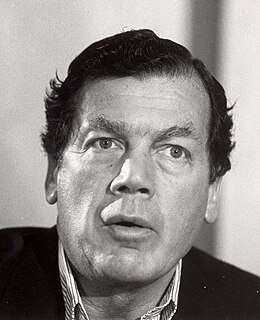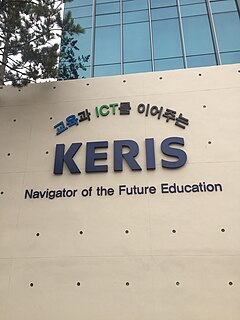Related Research Articles

The Jewish Agency for Israel formerly known as The Jewish Agency of Palestine, is the largest Jewish non-profit organization in the world. It was established in 1929 as the operative branch of the World Zionist Organization (WZO). The stated mission of the Agency is to "ensure that every Jewish person feels an unbreakable bond to one another and to Israel no matter where they live in the world, so that they can continue to play their critical role in our ongoing Jewish story."

Edgar Miles Bronfman was a Canadian-American businessman. He worked for his family's distilled beverage firm, Seagram, eventually becoming president, treasurer and CEO. As president of the World Jewish Congress, Bronfman is especially remembered for initiating diplomacy with the Soviet Union, which resulted in legitimizing the Hebrew language in the USSR, and contributed to Soviet Jews being legally able to practice their own religion, as well as immigrate to Israel.

Community service is unpaid work performed by a person or group of people for the benefit and betterment of their community without any form of compensation. Community service can be distinct from volunteering, since it is not always performed on a voluntary basis and may be compulsory. Although personal benefits may be realized, it may be performed for a variety of reasons including citizenship requirements, a substitution of criminal justice sanctions, requirements of a school or class, and requisites for the receipt of certain benefits.
Hillel: The Foundation for Jewish Campus Life is the largest Jewish campus organization in the world, working with thousands of college students globally. Hillel is represented at more than 550 colleges and communities throughout North America and globally, including 30 communities in the former Soviet Union, nine in Israel, and five in South America. The organization is named after Hillel the Elder, a Jewish sage who moved from Babylonia to Judea in the 1st century and is known for his formulation of the Golden Rule.

Open educational resources (OER) are freely accessible, openly licensed instructional materials such as text, media, and other digital assets that are useful for teaching, learning, and assessing, as well as for research purposes.

Universitas Terbuka is Indonesia's state university and employs open and distance learning (ODL) system to widen access to higher education to all Indonesian citizens, including those who live in remote islands throughout the country as well as in various parts of the world. It has a total student body of 1,045,665 as of 2019/2020 according to Indonesia's Ministry of Education Higher Education database. According to a distance education institution in the UK, UT, including one from "The Top Ten Mega Universities" UT-3 ranks after similar universities in China and Turkey.

The Cummings Jewish Centre for Seniors (CJCS) is a constituent agency of Federation CJA in Montreal, Quebec, Canada. It offers a fully integrated service system that assists Jewish seniors in Montreal, promoting positive attitudes towards aging, encouraging independent living, and enhancing the quality of life.
Community education, also known as community-based education or community learning & development, is an organization's programs to promote learning and social development work with individuals and groups in their communities using a range of formal and informal methods. A common defining feature is that programmes and activities are developed in dialogue with communities and participants. The purpose of community learning and development is to develop the capacity of individuals and groups of all ages through their actions, the capacity of communities, to improve their quality of life. Central to this is their ability to participate in democratic processes.

Devi Ahilya University, formerly Indore University, is a State University whose jurisdiction was initially restricted to Indore city. Later on, its jurisdiction was extended to seven tribal-dominated districts of Indore division namely, Jhabua, Alirajpur, Dhar, Khargone, Khandwa, Burhanpur and Barwani. It is thus catering to the educational needs of the most industrially developed district of Madhya Pradesh, Indore on one hand and to the seven tribal and rural backward districts of the State on the other. DAVV is the only University in Madhya Pradesh accredited A+ Grade by NAAC.
ORT, also known as the Organisation for Rehabilitation through Training, is a global education network driven by Jewish values. It promotes education and training in communities worldwide. Its activities throughout its history have spanned more than 100 countries and five continents. It was founded in 1880 in Saint Petersburg to provide professional and vocational training for young Jews.

Open education is an educational movement founded on openness, with connections to other educational movements such as critical pedagogy, and with an educational stance which favours widening participation and inclusiveness in society. Open education broadens access to the learning and training traditionally offered through formal education systems and is typically offered through online and distance education. The qualifier "open" refers to the elimination of barriers that can preclude both opportunities and recognition for participation in institution-based learning. One aspect of openness or "opening up" education is the development and adoption of open educational resources in support of open educational practices.
An open textbook is a textbook licensed under an open license, and made available online to be freely used by students, teachers and members of the public. Many open textbooks are distributed in either print, e-book, or audio formats that may be downloaded or purchased at little or no cost.
The Women’s Institute for Secondary Education and Research (WISER) International is a non-profit organization providing high-quality girls' education, holistic health resources, and community-oriented support in Muhuru Bay, Kenya.

KERIS is a governmental organization under the South Korean Ministry of Education, Science and Technology that develops, proposes, and advises on current and future government policies and initiatives regarding education in South Korea.
The Center for Homeland Defense and Security at the Naval Postgraduate School (NPS) in Monterey, California is a school focusing on homeland security education.
Open educational practices (OEP) are part the broader open education landscape, including the openness movement in general. It is a term with multiple layers and dimensions and is often used interchangeably with open pedagogy or open practices. OEP represent teaching and learning techniques that draw upon open and participatory technologies and high-quality open educational resources (OER) in order to facilitate collaborative and flexible learning. Because OEP emerged from the study of OER, there is a strong connection between the two concepts. OEP, for example, often, but not always, involve the application of OER to the teaching and learning process. Open educational practices aim to take the focus beyond building further access to OER and consider how in practice, such resources support education and promote quality and innovation in teaching and learning. The focus in OEP is on reproduction/understanding, connecting information, application, competence, and responsibility rather than the availability of good resources. OEP is a broad concept which can be characterised by a range of collaborative pedagogical practices that include the use, reuse, and creation of OER and that often employ social and participatory technologies for interaction, peer-learning, knowledge creation and sharing, empowerment of learners, and open sharing of teaching practices.

Kenjgewin Teg Educational Institute (KTEI) is an Aboriginal-owned and controlled post-secondary institution at M'Chigeeng First Nation, on Mnidoo Mnising Manitoulin Island, Ontario, Canada. In the Ojibwe language, Kenjgewin Teg means a place of knowledge. KTEI provides educational initiatives to its member population of 6,800+ people and to students in the surrounding area. Programs are offered to its eight-member First Nations:
Michael (Mike) Rosenak was an Israeli philosopher of Jewish education. He was the Mandel Professor of Jewish Education at The Hebrew University in Jerusalem.
Open educational resources in Canada are the various initiatives related to open education, open educational resources (OER), open pedagogies (OEP), open educational practices (OEP), and open scholarship that are established nationally and provincially across Canadian K-12 and higher education sectors, and where Canadian based inititatives extend to international collaborations.

Educational management refers to the administration of the education system in which a group combines human and material resources to supervise, plan, strategise, and implement structures to execute an education system. Education is the equipping of knowledge, skills, values, beliefs, habits, and attitudes with learning experiences. The education system is an ecosystem of professionals in educational institutions, such as government ministries, unions, statutory boards, agencies, and schools. The education system consists of political heads, principals, teaching staff, non-teaching staff, administrative personnel and other educational professionals working together to enrich and enhance. At all levels of the educational ecosystem, management is required; management involves the planning, organising, implementation, review, evaluation, and integration of an institution.
References
- ↑ "Soul Maps: Chabad House sponsors Kaballah course" . Retrieved 9 October 2014.
- ↑ "New course on Kabbalah".
{{cite web}}: Missing or empty|url=(help)